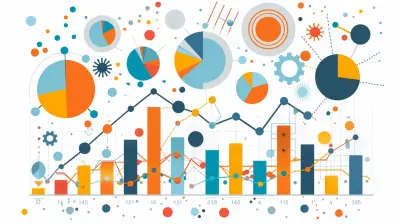Cross-Generational Perspectives on Adapting to Change
13 November 2025
Change… It's the only constant, right? But how we react to it? Now that's a moving target. Depending on who you talk to—your tech-savvy niece glued to TikTok or your old-school grandfather still raving about rotary phones—you’ll likely get very different takes on what it means to adapt.
In today’s fast-flowing digital river, every generation's approach to change is like paddling in their own kind of canoe. Some are riding sleek modern kayaks, while others are rocking handcrafted wooden boats. Same river, different strokes.
So let’s take a deep dive into the mysterious and often unspoken dynamics of how different generations respond to change. And trust me, it’s more than just kids vs. boomers. It’s about mindset, values, technology, and good old human emotion.
The Six Generations Sharing the Stage
First things first—who are we talking about when we say “generations”? Here’s a quick cheat sheet:- Silent Generation (Born 1928-1945)
- Baby Boomers (Born 1946-1964)
- Generation X (Born 1965-1980)
- Millennials (Born 1981-1996)
- Generation Z (Born 1997-2012)
- Generation Alpha (Born 2013+)
Each of these groups has been shaped by specific historical events, technologies, and societal values. And these factors have seriously influenced how they face change.
Silent Generation: Stoic But Cautious
Let’s start with the oldest crew still hanging around the workforce or influencing family dynamics—the Silent Generation.Born into war and coming of age during the Great Depression and World War II, these folks survived some stuff we can barely imagine. Change, to them, isn’t a trend—it’s a storm to be weathered.
How they adapt: Carefully. Slowly. Skeptically. They favor tradition and stability. They’re not anti-change—they just need very good reasons to change what works.
Metaphor alert: They deal with change like someone holding a hot cup of coffee—carefully, thoughtfully, and with both hands.
Baby Boomers: The Reluctant Pioneers
Next up, the boomers. Makers of the modern corporate world, raised on television and shaped by civil rights movements, space exploration, and rock ‘n’ roll.Despite the stereotype that they’re allergic to change, many boomers were the original disruptors. They were the first to challenge norms and question authority en masse.
How they adapt: With measured resilience. They’re pragmatic, but they often wrestle with technology. Give them time—and a manual—and they’ll figure it out.
Many boomers are now at the tail end of their careers or in leadership roles. Their challenge? Adapting not just to tech, but to social shifts that redefine the workplace and society at large.
Generation X: The Chameleons
Ah, Gen X—the so-called “forgotten generation.”Raised during economic uncertainty, broken homes, and the rise of computers, Gen X is a mix of punk rebellion and practical survival. They were latchkey kids before we even had a name for it.
How they adapt: Quietly but efficiently. They’re the ultimate middle managers of change—bridging analog and digital life, understanding tradition while embracing innovation. They often lead by example, not with hashtags.
Think of them like the Swiss army knife of generations—versatile, reliable, and criminally underestimated.
Millennials: The Disrupted Disruptors
Now we’re getting spicy. Millennials grew up in the age of dial-up—and matured with smartphones. They’ve witnessed the fall of Blockbuster and the rise of Netflix. They’ve gone from “Why aren’t you married yet?” to “Why haven’t you launched your startup?”How they adapt: Fast, but sometimes with anxiety. Millennials crave purpose and value. They’re digital natives who also remember life before constant Wi-Fi.
Change has been relentless for them—economic crashes, student debt, a housing crisis, pandemics—you name it. So yeah, they’re pretty good at change. But it comes with emotional weight.
Imagine them as surfers on a wave they didn’t create, trying to stay upright while juggling a side hustle.
Generation Z: The Agile Architects
Now we’re talking about the kids who don’t remember life before Instagram. Gen Z was born into the cloud. They don’t adapt to change—they expect it.How they adapt: Instantly. Fluidly. They’re mobile-first, meme-fueled, and mission-driven. But don’t mistake speed for depth—they think deeply about identity, justice, and authenticity.
They don’t trust institutions easily, they demand transparency, and they aren’t afraid to call BS from a mile away. If change is a software update, they’re already downloading the beta version.
Generation Alpha: The Unknown Frontier
Too young to have a solid track record, Gen Alpha is being raised by millennials (who are digital-savvy themselves). These kids have AI-powered toys, smart assistants, and likely more screen time than playtime.Predicted adaptability: Extremely high. They’re being conditioned to accept rapid change as default. But mental health and interpersonal skill development might be the big “change” challenge they’ll face in years to come.
If Gen Z is agile, Gen Alpha might be liquid—able to flow, morph, and mold with zero resistance.
The Hidden Challenges of Cross-Generational Change
Now here’s where things get interesting. Put all these generations in one room—say, a business meeting or a family reunion—and throw in a big change. Watch the sparks fly.Why? Because each generation defines progress differently.
- Boomers might say, “If it ain’t broke, don’t fix it.”
- Millennials might ask, “Can we make it more meaningful?”
- Gen Z might say, “That’s obsolete—delete it.”
This isn’t just about age—it’s about how people process change. Is it a threat? An opportunity? A puzzle? A revolution?
Workplaces as Cross-Gen Battlefields
Let’s be honest—change in the workplace is where generational tension often explodes into passive-aggressive email threads.Picture this:
- A Gen Z employee wants to switch to Slack and ditch email.
- The Gen X manager is okay with it—as long as it works.
- The Boomer VP says, “What’s wrong with email?”
See the dilemma?
But here's the thing—each generation brings something vital to the table. Boomers offer wisdom. Gen X brings balance. Millennials bring innovation. Gen Z brings urgency.
The trick is harnessing these differences instead of letting them clash. Think of generations like gears in a machine: when aligned, they generate serious momentum.
Why Change Feels So Personal
Ever noticed how someone’s reaction to change feels like a window into their soul?That’s because change challenges identity. It forces us to question what we value, what we believe, and—most importantly—what we fear.
- Older generations may fear irrelevance.
- Younger ones may fear instability.
- Everyone fears loss. Of what was. Of control.
But here’s the kicker—change doesn’t care about comfort zones. It cares about progress. And whether you’re 19 or 91, learning to dance with change is non-negotiable.
Bridging Generational Gaps: A Survival Guide
Here’s the million-dollar question: How do we get everyone on the same page?1. Listen Without Labels
Stop assuming a Gen Z intern is lazy or that a Boomer can’t handle tech. Get curious instead. Ask questions. Share stories. Create psychological safety.2. Mix Mentorship
Let the old teach the young and vice versa. Reverse mentorship isn’t just a buzzword—it’s how we pass on context and keep pace with the future.3. Speak to Values, Not Just Tools
Change fails when people are told “what” to do, not “why.” Find the emotional payoff for each generation. Connect change to purpose.4. Create Change Champions Across Ages
Don’t just make the 20-something your innovation guru. Empower people of all ages to own pieces of the change puzzle. Age is not a skill set; mindset is.The Bigger Picture: Change is a Human Story
When you strip away the tech, the trends, and the Twitter drama, adapting to change is about one simple truth:We all want to matter.
Whether you’re a Gen X’er navigating AI tools or a Millennial trying to reinvent your career, the desire is the same. To stay relevant. To stay connected. To stay human in a world that often feels like it’s moving too fast.
So maybe the real secret to cross-generational adaptation isn’t learning how to use new technology or keeping up with trends.
Maybe it’s empathy.
Final Thoughts
Adaptation isn’t just a skill—it’s a mindset. And the best leaders, families, and teams are those who can gather every generation around the fire, share stories, and figure out how to move forward together.Because here’s the beautiful truth:
Change doesn’t divide us.
Resisting it does.
all images in this post were generated using AI tools
Category:
Change ManagementAuthor:

Ian Stone
Discussion
rate this article
1 comments
Maxwell Young
Embracing diverse perspectives fuels innovation—together, we can thrive in a changing world!
November 13, 2025 at 5:45 AM

Ian Stone
Thank you for your insightful comment! Embracing diverse perspectives indeed drives innovation and collaboration, essential for thriving in an ever-changing landscape.


